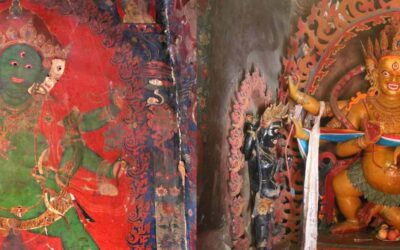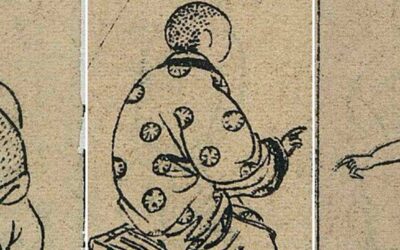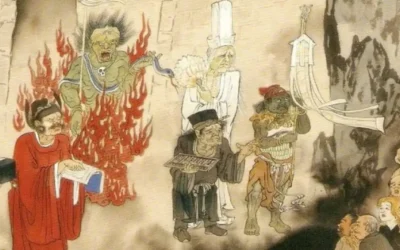Zhuang phallic ritual
Zhuang minority has an interesting phallic ceremony. According to their legends, in antique times there was no communication between the two banks of the Hongshui River, women living on one bank of the river and men on the other. The god Buluotou stretched out his big and long sex over the river, making a celestial bridge. Thanks to this bridge the people crossed the river, and they mated making the first families, and humanity propagated.
When the god become old and the bridge turned soft, he removed the bridge leaving two pubic hairs that turned in two ways, masculine and feminine, making a bridge of men and women, where the people met in joy.
Every year, in the days following the New Year Festival, local people gather in the two banks of Hongshui River to celebrate a festival honoring Buluotou’s sex. They sacrifice an ox and a cow to Buluotou, provided by the people living on the two banks of the river. Images of the sex of the god are hung everywhere, usually as a paper sail, that the wind can blow as in the penis of the god have an erection.
Zhuang people eat and drink, the young people sing love songs. During the festival, they honor also their goddess Miliujia, as they consider that both she and Buluotou together created human beings. In the last 30 years, the sacrifice of the ox and cow were stopped, but not the festival atmosphere and the singing gathering.
Last posts
Parnashavari: The Tibetan Goddess of Medicine
Parnashavari: The Tibetan Goddess of Medicine Within the complex symbolism of Tibetan deities and protectors, I like to look for distinctive details that allow us to identify a figure the moment we see them in a temple. One of the goddesses who makes this task...
The Smallpox Goddess (Doushen)
The Smallpox Goddess (Doushen) The Smallpox Goddess (Doushen 痘神) is part of a group of goddesses whose primary role was the protection of children. In the final years of the imperial era, they operated under the authority of Bixia Yuanjun, the daughter of the Emperor...
The Solution to the West’s Suicide Epidemic Can Be Found in the Culture of a Himalayan People
The Solution to the West’s Suicide Epidemic Can Be Found in the Culture of a Himalayan People In recent years, the number of suicides among young people has skyrocketed. In some countries, such as Spain, suicides have already surpassed traffic accidents as the leading...







